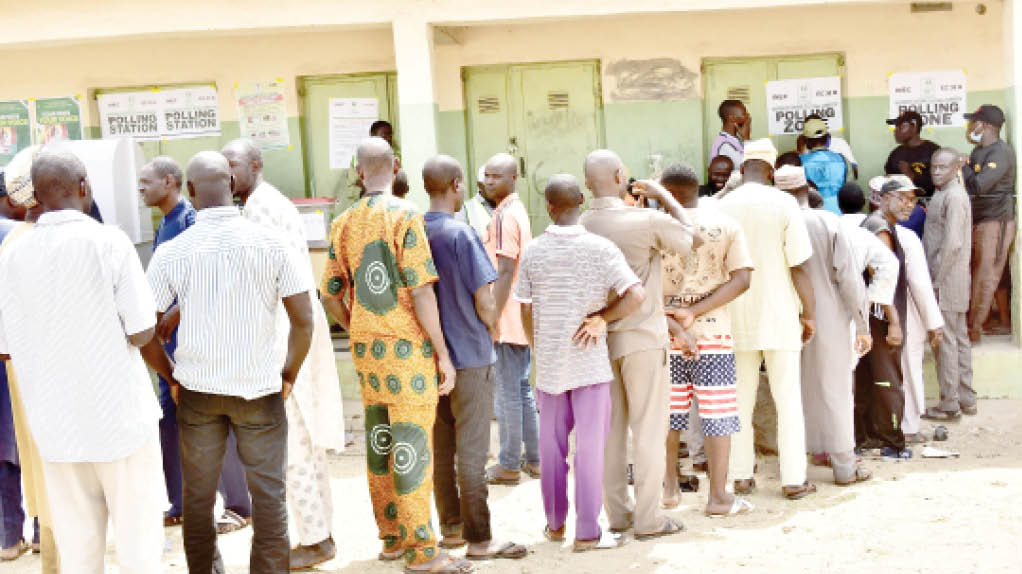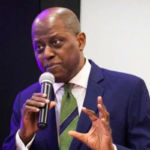Some Nigerians on social media have expressed their views on how the new Central Bank of Nigeria (CBN)’s policy on cash withdrawal will affect the outcome of the 2023 general elections in the country.
The CBN governor, Godwin Emefiele, had on October 26, 2022, announced that the apex bank would redesign three naira notes.
He said the bank had obtained approval from President Mohammadu Buhari to redesign N200, N500 and N1000 notes, adding that the new notes will come into effect by December 15.
He further disclosed that over 80 per cent of the total cash in circulation was outside the banking system, adding that “N2.73 trillion out of N3.23 trillion exists outside the commercial bank.”
- Daily Trust director, Aminu Dangana, bags traditional title in Kano
- Obasanjo finally endorses Peter Obi
And on December 6, 2022, the CBN rolled out another policy. This time, it announced the pegging of maximum over-the-counter (OTC) cash withdrawal per week for individuals at N100,000 and N500,000 for corporate organisations.
However, 15 days later, the apex bank announced an upward review of its cash withdrawal limit policy as individuals can now withdraw N500,000 cash weekly and up to N5 million for corporate entities from January 9, 2023.
CBN said the review was based on feedback it got from stakeholders after issuing the December 6 circular.
That notwithstanding, many Nigerians are of the view that these policies are targeted at vote buyers who would have stocked huge money ahead of the general elections in 2023. The general belief is that these individuals would be forced to return the money to the bank as the old notes would be phased out in January while it would also be difficult to withdraw huge sums afterwards for the purpose of vote buying.
Vote selling and buying have increased since after the Independent National Electoral Commission (INEC) made some technological innovations in the electoral process which made rigging difficult.
The off-season elections in Ekiti and Osun states experienced massive vote selling and buying.
Speaking on the Ekiti election, the Centre for Democracy and Development, CDD, revealed that its field observers documented 41 instances of vote-buying and selling at polling units across six local government areas (LGAs) during the governorship election.
The Chairman of CDD’s Election Analysis Centre (EAC), Prof. Adele Jinadu, said vote buying took the patterns of cash collection in brown envelopes to disguise the content in order to avoid arrest by the anti-corruption agencies.
During a two-hour Twitter Spaces session on Friday organised by Daily Trust in partnership with CDD, some social media users expressed their views on the new CBN cash withdrawal limit and how it will impact the 2023 general elections.
One of the speakers with the handle @Waziri75 argued that the CBN’s policy will still allow those intending to buy votes to withdraw huge amounts individually and through their companies as most of them are company owners.
“I don’t think this policy will curb vote buying during the 2023 election because clearly, corporate organisations can withdraw more money. Of those who are in the business of vote buying, the majority of them own corporate organisations. So, what’s the point?
“Those who want to buy votes will not wait till the day of the election before they start withdrawing money for vote buying. I believe that they already have the money in stock.
“You can’t expect those people who are in the business of vote buying to start waiting for banks before they get money. This is Nigeria,” he said.
Similarly, Munelo said vote-buying has been happening since the beginning of democracy in Nigeria. “My mind went to what happened in the Ekiti and Osun elections where some people were arrested for sharing money among voters. Vote-buying has been here with us for a while but it’s just now that everything has been reduced to money.
“In the 1983 elections, I know that in the villages, whenever they came for the town halls or campaigns, they came with a lot of goodies to distribute to would-be voters.
“If we should go by what happened in Ekiti and Osun elections, I want to tell you that it would be foolhardy for these parties to do the vote buying the way they have been doing it.
“Even without the CBN’s policy on the limit of cash withdrawal, these people would have been looking for a way to do the same thing in different ways. If you look at the Osun election, we discovered that there was a way they know that this person has voted for their person before the payment is made. So, since the money is not paid before the election, they can devise another means.
“So, I don’t really see the possibility of the policy having effects. Maybe in the remote areas where people don’t have these banking facilities or don’t understand how it works but in other areas, especially in the South West, it would be easy for them to transit from physical cash to digital cash. In fact, I don’t think that is the target of the CBN policy,” he said.
Uyi Harry, who hailed the policy, however, said Nigerians might be underestimating the powers of the politicians.
“When it comes to vote-buying, I think we are underestimating the powers of these so-called looters and politicians. First of all, these monies are not looted into personal accounts, but mostly through companies. You are giving a company N5 million weekly limits. It’s going to be difficult for an individual to move money from the bank in a bullion van but if a company comes this week or four or five weeks before the election and starts withdrawing N5 million every week, I don’t think it will raise any red flags.
“So, what I believe in the cash withdrawal policy is that vote buying might still happen but this policy will reduce it to an extent.’’
Maryjane Nwalupue thinks that politicians always have their ways and that they could resort to giving out valuable gifts to voters. “I don’t believe that the cash limit is going to stop vote buying,” he said.
Also, Abubakar Haruna Abubakar argued that the CBN policy would not in any way curb vote buying.
“They have so many ways to buy the votes, not only through money sharing. They also buy valuable items and distribute them to the voters,” he said.
Seyi Shenba also shared the opinion that the cash withdrawal limit will not have any impact on the election.
“During the last election, we heard of people moving money with bullion vans. These people have access to MDs of banks that they can easily call and move money around for them, they don’t go to the bank and line up,” he argued.
On his part, Abdullahi Abubakar lamented that the old naira notes were still being dispensed by the ATM, expressing pessimism that the policy will work. He said most Nigerians only see the new naira note on the television.
He predicted that the CBN might extend the deadline to withdraw the old naira notes from circulation, saying: “They are supposed to circulate the new naira notes but they are nowhere in circulation. Go to the rural area, you can’t find the new naira notes anywhere.”
Dr N. Aminu, Abdullahi Lala and Ifanyi Samuel all believe the politicians would find their way around the policy, stressing that the solution to vote-buying lies with the Nigerians who can either decide to take bribes or not.
Dr N. Aminu said: “Anybody that is willing to sell their vote for cash can also do so with digital payment or other forms of incentives. Withdrawal limit has never been a tool for stopping voter fraud. So, why are we using it in Nigeria? Where have we seen it successful? This is a dead-on-arrival policy.”
Samuel said a politician who has about 100,000 special assistants can withdraw any amount through them to buy votes during the election.
However, there are a few others who believe the policy will go a long way in curbing vote buying during the election. “We all know that vote buying is illegal and the first thing you want to do is to avoid any trail when you are carrying out illegal activity. The way vote buying happens, you will know it is what is going on. A night before the election, you notice a lot of transfers from someone. It is not a wise thing to do by transferring money into people’s accounts. The prosecution would be so easy.
He said the policy will affect political parties differently. “This is Nigeria where some animals are more equal than others. Honestly, I am not sure this CBN policy will apply across the board. I am not going to be surprised if some people are still able to get the bullion vans during the elections the way they normally get them. There might be some powerful persons who may be able to circumvent these CBN rules and still get the cash the way they normally get it.”
Similarly, Idowu Israel is of the view that the policy would reduce vote buying in 2023. “We all know that vote buying has been a part and parcel of the electoral process. The politicians have weaponised poverty where people now see N2000 as what is going to sustain them for the rest of their lives. It is easier for the moneybag politicians to use that as a strategy to lure voters.
He said the redesigned naira notes and the withdrawal limit will work well together as people would have to take back to the bank their old money.
Olalekan Gabriel said it would be difficult to buy votes by transferring cash while Samuel Oseh believes the policy could go a long way in curbing vote buying.
This report and the Twitter Spaces discussion on the impact of the CBN cash withdrawal limit on vote-buying was done in collaboration with the Centre for Democracy and Development. The views expressed are not the position of CDD or Media Trust.

 Join Daily Trust WhatsApp Community For Quick Access To News and Happenings Around You.
Join Daily Trust WhatsApp Community For Quick Access To News and Happenings Around You.


